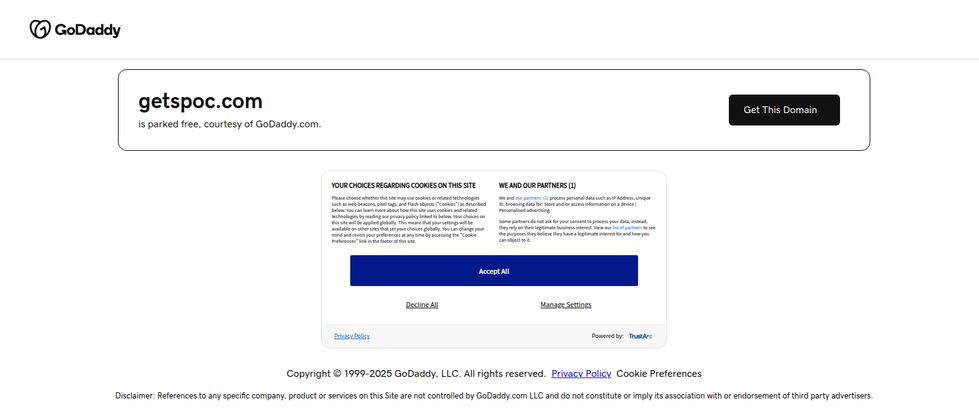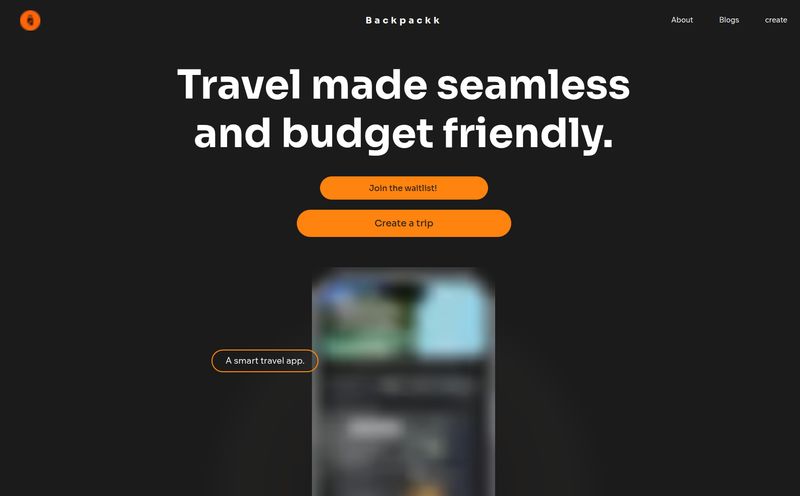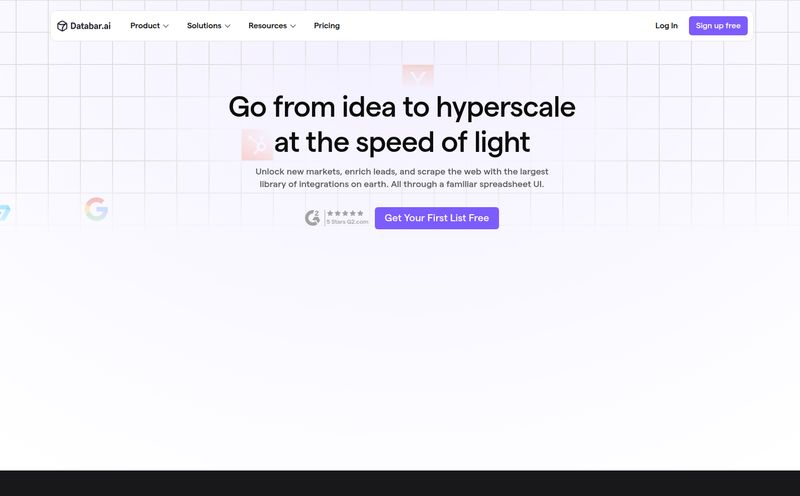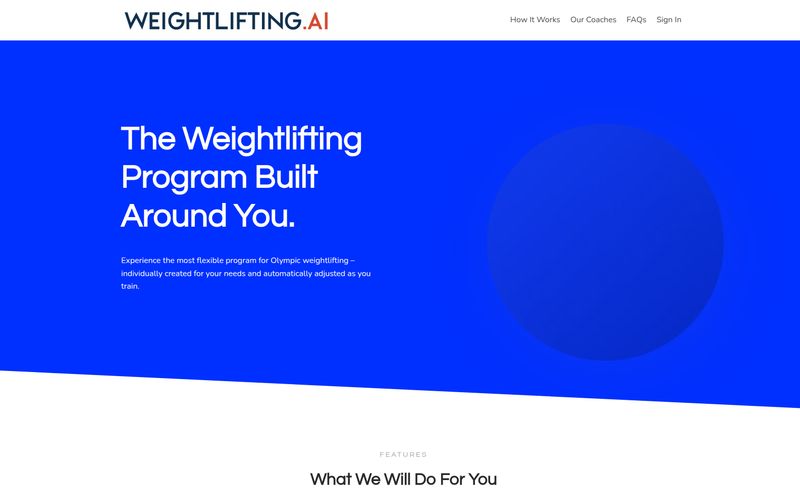If you're a project manager, a team lead, or anyone who has to herd the proverbial cats, your calendar is probably a war zone. It's a battlefield of stand-ups, syncs, check-ins, and post-mortems. And the worst part? The constant, nagging need to compile status reports. Pulling data from Jira, nudging people on Slack, trying to translate a dozen half-finished tasks into a coherent update for leadership... it’s a soul-sucking chore.
For years, we've been promised that software would save us. And it has, to a point. But it hasn't stopped the communication overhead. If anything, it’s just given us more channels to manage.
So when I heard about a new tool called Spoc AI, my ears perked up. The name alone is brilliant, obviously. It promises to be a single point of control for project charting and communication, using AI to automate the boring stuff so we can get back to the work that matters. I was intrigued, to say the least. I had to know more. And my little investigation led to some... unexpected findings.
So, What Exactly Is Spoc AI?
Think of it this way: if you, the project manager, are Captain Kirk—making bold decisions, managing the crew, and navigating treacherous territory—then Spoc AI is your First Officer, Spock. It's the cool, logical, data-driven entity at your side, processing immense amounts of information and presenting you with the most logical course of action. It's not here to replace you, but to augment your abilities.
From what I've gathered, Spoc AI isn't another clunky, all-in-one project management platform that forces your team to abandon tools they already know and love. Hallelujah. Instead, it cleverly integrates with the systems you're already using (think Jira, Asana, Trello) and your IM platforms (like Slack or Teams). It sits on top of your existing stack, acting as an intelligent layer that automates routine reporting, measures team productivity, and even helps manage escalations.
"Spoc AI automates project management, enhances team productivity, and provides risk insights."
It's designed to be the ultimate signal-booster in a world of noise. Instead of you manually checking every ticket and pinging every developer for an update, Spoc AI does it for you, providing concise summaries of tasks, meeting notes, and standup updates right where your team lives.

Visit Spoc AI
The Core Features That Actually Matter
A feature list is just a list until you understand the pain it solves. Here’s my breakdown of what Spoc AI brings to the table and why it's got my attention.
Finally, Automated Reporting That Doesn't Suck
I've lost entire Friday afternoons to compiling weekly progress reports. It's the definition of low-value, high-visibility work. Spoc AI aims to kill this task once and for all. By tapping into your PM tools, it automatically generates status reports. No more copy-pasting ticket numbers. No more chasing people for updates. Just a clean, clear summary of what’s done, what’s in progress, and what’s blocked. This alone could be worth its weight in gold.
Getting a Real Pulse on Team Productivity
Productivity measurement can feel a bit... Big Brother. But Spoc AI's approach seems more about clarity than surveillance. It helps organize the work of individual contributors (ICs) and measures output to give you a clear view of project velocity. This isn't about checking if someone was at their keyboard. It's about spotting bottlenecks, understanding team capacity, and seeing where processes are breaking down before a deadline gets blown. It’s about working smarter, not just tracking hours.
Managing Escalations and Predicting the Future
This is where things get really futuristic and, honestly, super cool. Spoc AI includes features for escalation management and, get this, risk and ETA prediction. The AI analyzes project data to flag potential risks—a series of tasks falling behind, a critical dependency that's stalled—and gives you a heads-up. It can also provide more accurate ETAs based on historical data. Imagine being able to tell a stakeholder, "There's a 70% chance this feature will be delayed by three days unless we address this blocker now." That's a game-changer.
It Plays Nicely with Your Existing Tools
I can't stress this enough. The biggest barrier to adopting a new tool is... well, adopting a new tool. The fact that Spoc AI integrates with existing systems is probably its most critical feature. It means less disruption for your team and a much faster path to getting value. It connects to your project management system for data and your instant messenger for communication, like sending automated ticket update reminders via Slack. A very smart approach.
The Real Talk: What's Great and What's... Not
No tool is perfect, and I'm always skeptical of marketing hype. Based on the info I could find, here's my honest take on the good, the bad, and teh AI.
On the upside, the benefits are incredibly compelling. You're looking at a massive time-saver. All those hours spent on manual reporting and follow-ups? Gone. This directly leads to improved team productivity because everyone is focused on their actual work, not on talking about the work. You get clearer project visibility without having to build a complex dashboard yourself, and the automation of routine tasks and escalations just makes everything run smoother. It’s a pretty powerful value proposition.
However, let's keep our feet on the ground. There are a few reality checks to consider. First, a tool this connected will require some initial setup and configuration. It’s not going to be plug-and-play in five minutes. Second, its effectiveness is entirely dependent on the quality of data in your project management system. If your team is sloppy with updating their Jira tickets, Spoc AI can't create magic. It’s a classic case of garbage in, garbage out. Finally, and this is a big one for me, the reliance on AI for communication might lack the human touch in certain situations. An AI can flag an escalation, but can it handle a delicate conversation with a burnt-out engineer? I have my doubts. Some things just need a human.
The Million-Dollar Question: What's The Price?
Alright, so this is where the story takes a turn. After getting all hyped up about the possibilities, I did what any of us would do: I went to check out the website. I typed in `getspoc.com`, ready to look for a pricing page or a demo button, and... I hit a GoDaddy parked domain page.
Yep. As of this writing, the website isn't live.
What does this mean? It could be a few things. Spoc AI might be in a deep stealth mode, only working with a select few beta customers. They could be preparing for a big launch, or maybe they're in the middle of a pivot. Whatever the reason, it means that pricing information for Spoc AI is currently unavailable. This is both frustrating and a bit exciting—it feels like we're getting a sneak peek at something before it hits the mainstream.
Who Should Be Keeping an Eye on Spoc AI?
Even without a live site, it's clear who this tool is built for. If you're a Project Manager, Scrum Master, Engineering Lead, or Head of Operations in a tech-focused company, you should have Spoc AI on your radar. Especially if you work in an agile environment where the pace is fast and the communication overhead is high. If your day is a blur of Slack notifications and Jira boards, this tool is designed to be your best friend.
Frequently Asked Questions About Spoc AI
- How does Spoc AI integrate with tools like Jira or Slack?
- It connects via APIs to your existing project management systems to pull task data and to communication platforms like Slack or MS Teams to deliver summaries, updates, and notifications.
- Will Spoc AI replace my project manager?
- Highly unlikely. The goal isn't to replace the human element of project management (strategy, empathy, complex problem-solving) but to automate the repetitive, administrative tasks, freeing up the PM to focus on what matters.
- Is Spoc AI difficult to set up?
- The documentation suggests some initial setup and configuration is required. You'll likely need to authorize access to your other software and configure how you want reports and notifications to work. It’s not a magic button, but it's designed to be a one-time setup.
- How does the AI predict project risks and ETAs?
- It likely uses machine learning models trained on vast amounts of project data. By analyzing patterns in your current and past projects (like task completion times, dependencies, and blocker frequency), it can forecast potential delays and flag risks that a human might miss.
- Can I customize the reports and summaries?
- While not explicitly stated, any modern tool of this nature would almost certainly offer customization. You'd likely be able to configure the content, frequency, and recipients of the automated reports to fit your team's and stakeholders' needs.
- Okay, so where can I actually sign up for Spoc AI?
- That's the mystery! As of now, the getspoc.com domain is parked. The best bet is to keep the name on your watchlist and search for it periodically. When it launches, it will likely make a splash in the tech and project management communities.
My Final Verdict: Is It Logical?
So, what's the bottom line? Spoc AI is a fascinating proposition. The idea of an intelligent assistant that handles the most tedious parts of project management is more than just appealing; it feels inevitable. The features, particularly the automated reporting and risk prediction, target some of the biggest pain points in the industry.
Of course, it's all theoretical until we can get our hands on it. The parked domain adds a layer of mystery, but it doesn't detract from the power of the idea. The potential is immense.
For now, I'm cautiously optimistic. I’m setting my hailing frequencies to open, waiting to see if Spoc AI can truly help us… live long and prosper in our projects. It's only logical.
Reference and Sources
- Initial product data and feature lists were based on pre-launch documentation.
- The official website, when live, will presumably be located at getspoc.com (currently a parked domain).
- For further reading on the topic, see Gartner's insights on AI in the modern enterprise.



